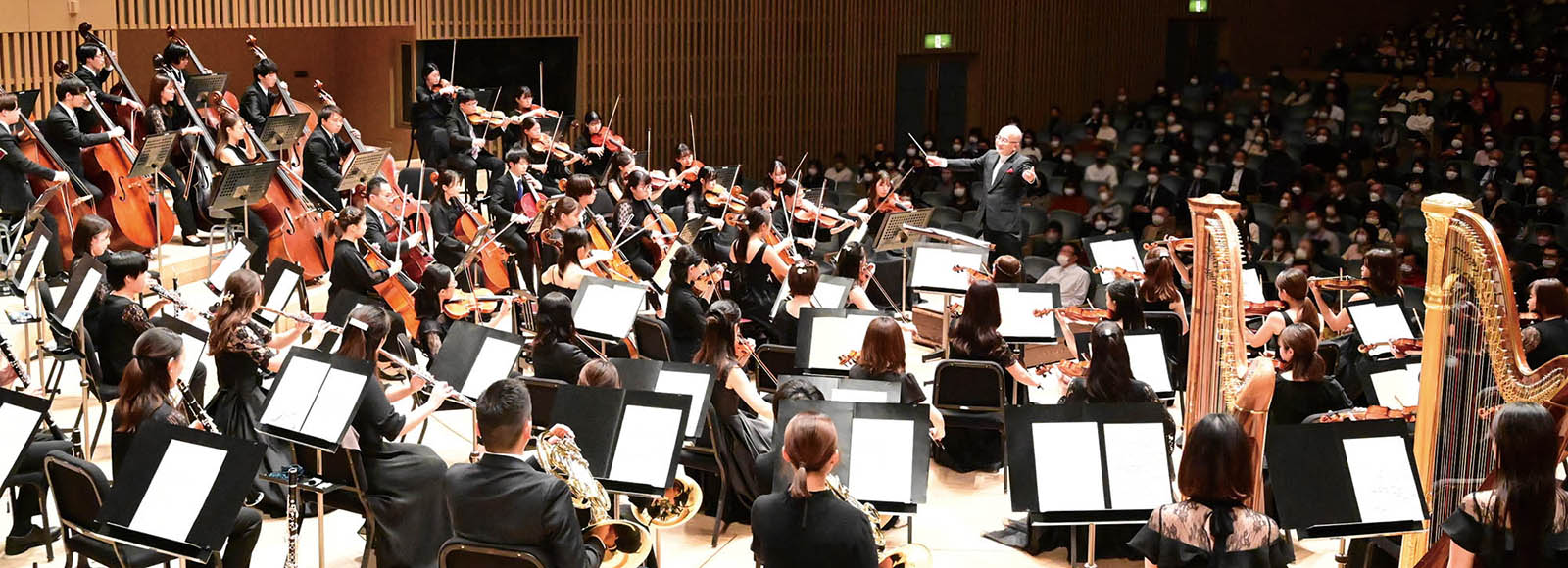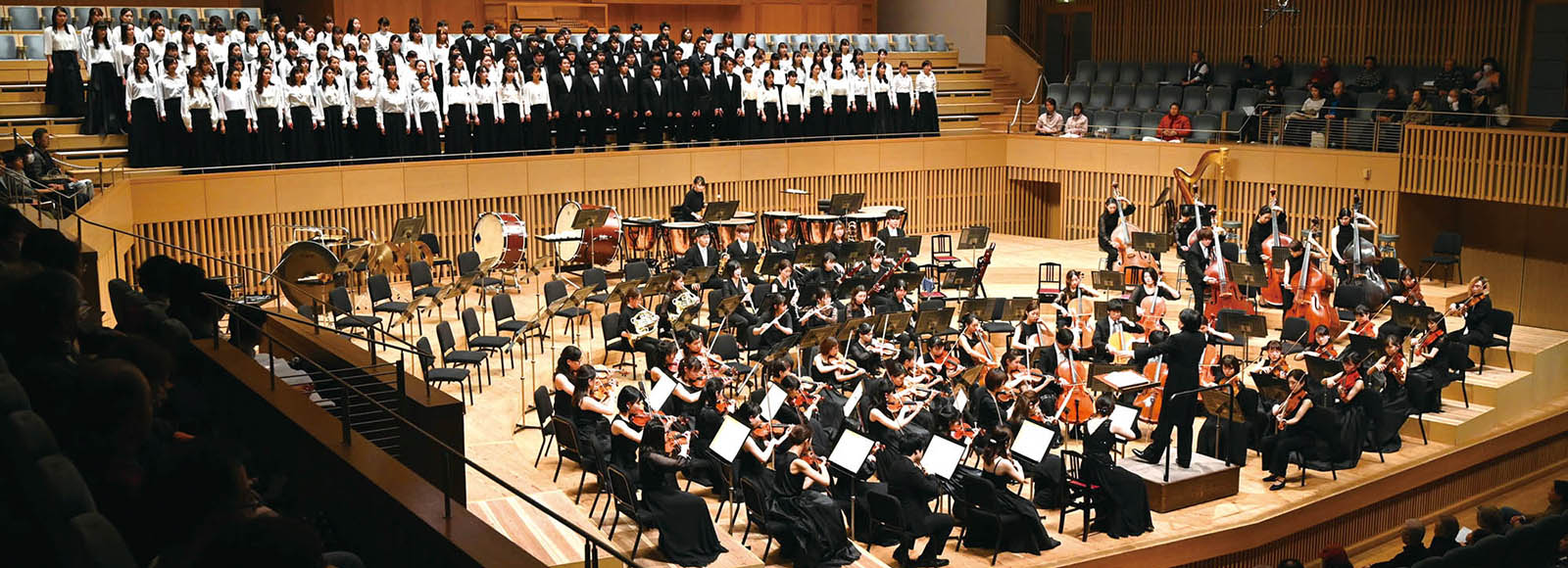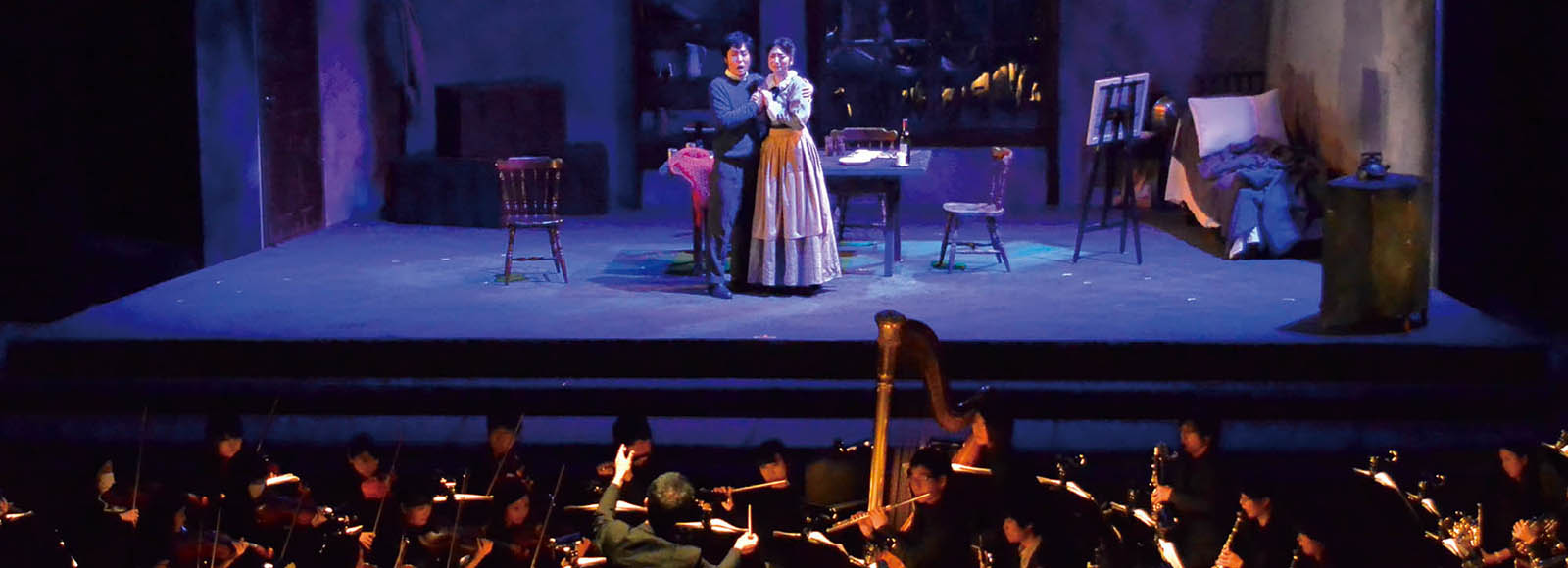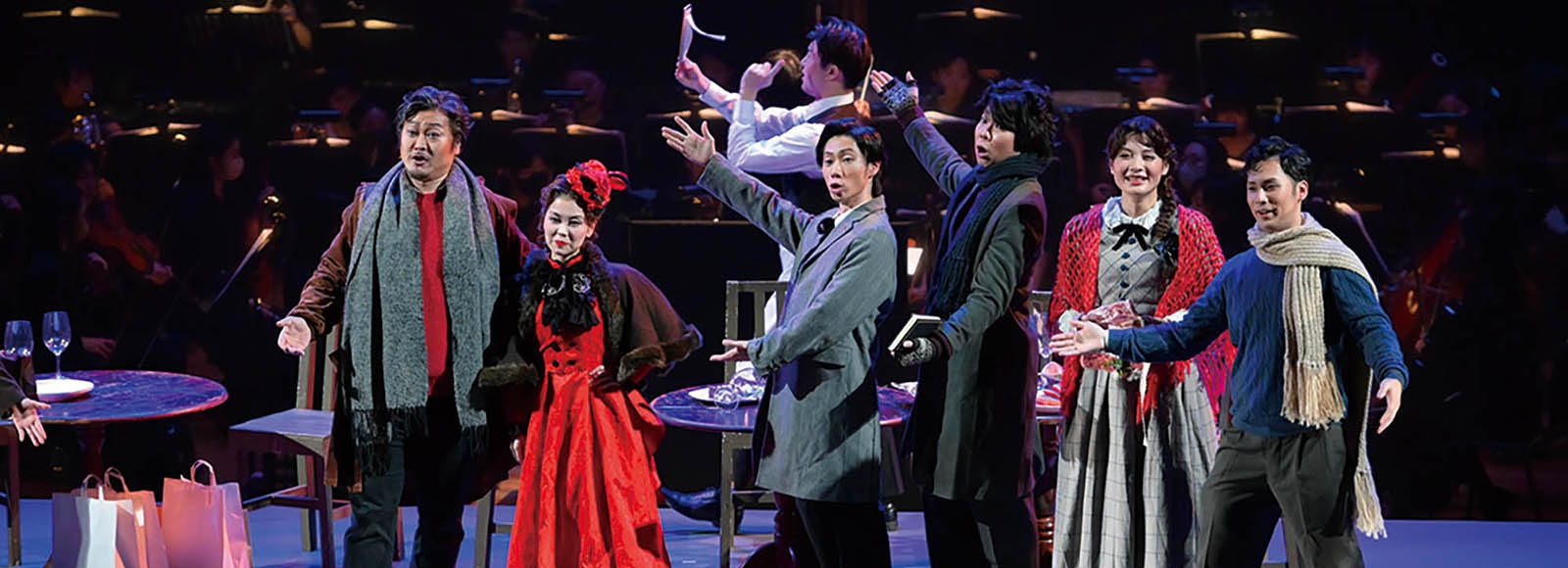Graduate School of Music – Master’s Course
Educational and Research Objectives
The objectives of the course are to provide students the opportunity to learn and do research on musical art while placing a high priority on developing each student’s personality and creativity. It aims to train excellent musicians and researchers with the ability to play active roles in society by taking full advantage of their professional knowledge.
Departments
Composition and Conducting
Composition
This course is a continuation of studies at the undergraduate school. To the extent possible, students are expected to actively participate in events so that they can experience the planning and production of events, in order to develop fully as independent composers. To complete this course one has to either (1) present a master’s work or (2) present a master’s work and submit a master’s thesis. For those who intend to continue their studies in the doctoral course, writing a master’s thesis is recommended.
Conducting
In this course, students practice conducting and study conducting methods in order to achieve maturity in their technique. Also, students are expected to expand their repertoires and to be able to conduct actively.
Instruments
Piano
Students are expected to deepen their musical knowledge and develop their technical abilities, thereby widening their expressive power. They will also pursue theoretical research. In the school year 2016-2017, emphasis is placed on the works of Maurice Ravel and Ludwig van Beethoven. A second year master’s performance is required for all students. To complete this course there are three options: (1) submit a thesis, (2) play a first year performance, or (3) submit a report in addition to playing a short first year performance.
Strings
The objective of this course is to develop musicians who can contribute to society. Students push themselves to learn more advanced playing techniques and do research on the interpretation of musical works. To complete this course they have to do a master’s performance I at a recital that lasts 50 to 60 minutes. In addition to this, they have to do one of the following assignments.
- Master’s performance II (40 to 50 minutes)
- Master’s performance III (30 to 40 minutes) and report (8,000 to 20,000 characters)
- Master's thesis (40,000 characters)
Brass, Woodwinds and Percussion
Students are expected to acquire more advanced playing techniques and do theoretical research. They are assigned to do a master’s performance I (solo). In addition to this, they have to (1) submit a master’s thesis, (2) do a master’s performance II (a chamber music recital), or (3) do a master’s performance III and submit a report. There are several performance opportunities for students, such as school concerts and the “Evening for Winds and Percussions Ensemble” held in the city. The graduates of this course will become performers, researchers studying abroad, music teachers at high schools, instrument makers, instrument sellers and music managers etc.
Vocal
In this course, students conduct professional research. They are assigned to do a master’s performance I. In addition to this, they have to (1) submit a master’s thesis, (2) do a master’s performance II, or (3) do a master’s performance III and submit a report. There are two kinds of singing classes: German and French. Students select their own research themes. In the vocal training class, they practice religious songs. In the opera class, students hold an opera concert once a year. This is a full-scale opera concert accompanied by a full orchestra and is open to the public.
Musicology
Students conduct advanced research on their own themes. They not only study musicology and the original source books, but also take practical classes. They pursue research themes under the guidance of the faculty and write their master’s thesis. Those students who have achieved excellent results can present their work at academic symposia. Those who want to study further may advance to the doctoral course.
Japanese Music Research
This course aims to develop the students’ understanding of Japanese traditional music and performing arts with various academic perspectives. Students study traditional Japanese culture with a focus on music. Not only studying the theory, philosophy and history of Japanese traditional music, but also participating practical music classes such as singing and playing instruments, students are able to acquire both academic knowledge and practical skills. These studies also provide students in-depth understanding of the inheritance of Japanese traditions. With the knowledge of academic studies and practical lessons, students conduct advanced researches on their own themes and write master’s theses. In addition to that, students are expected to develop their presentation and communication skills in order to present their researches to the public in comprehensible ways.






